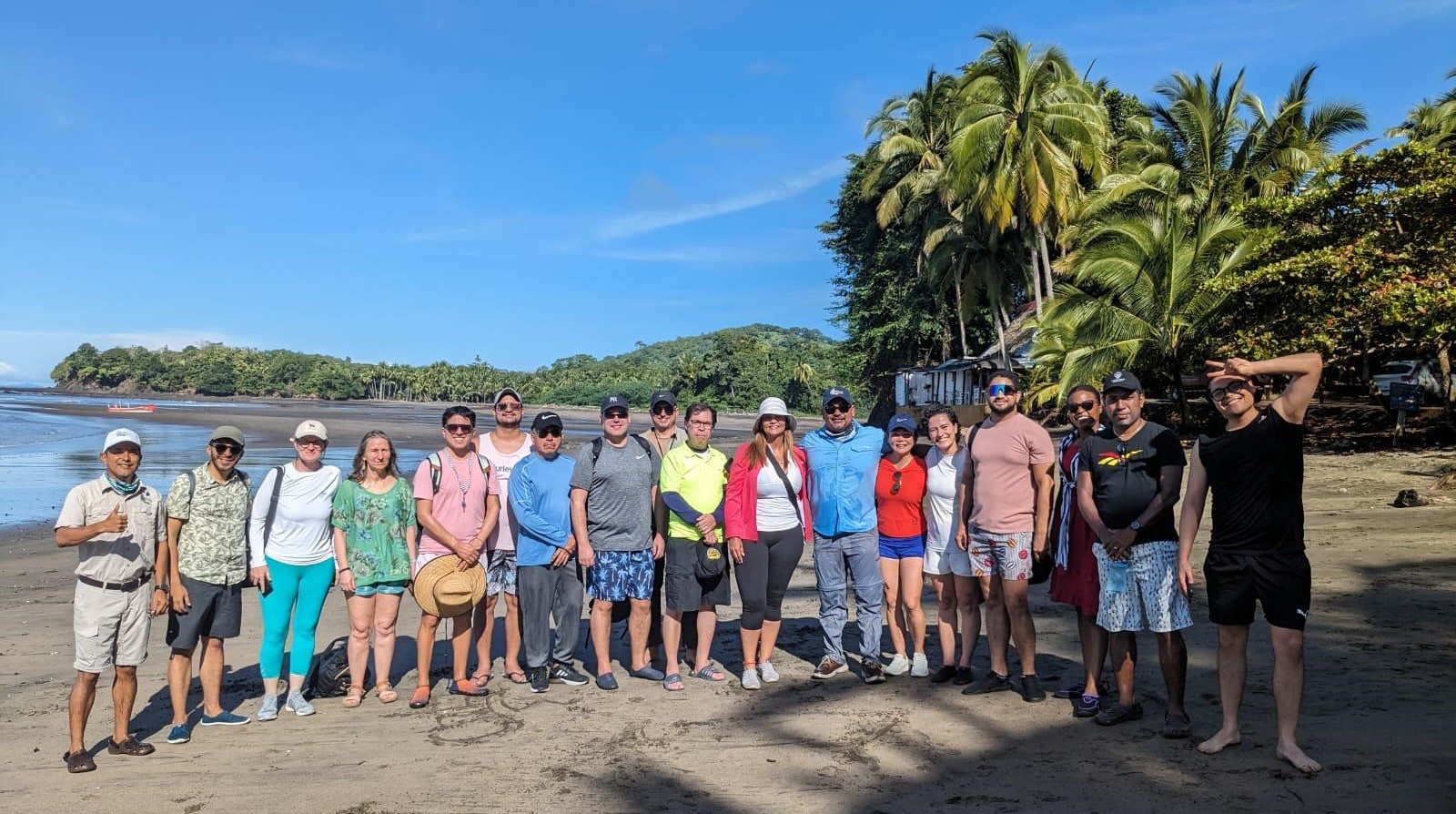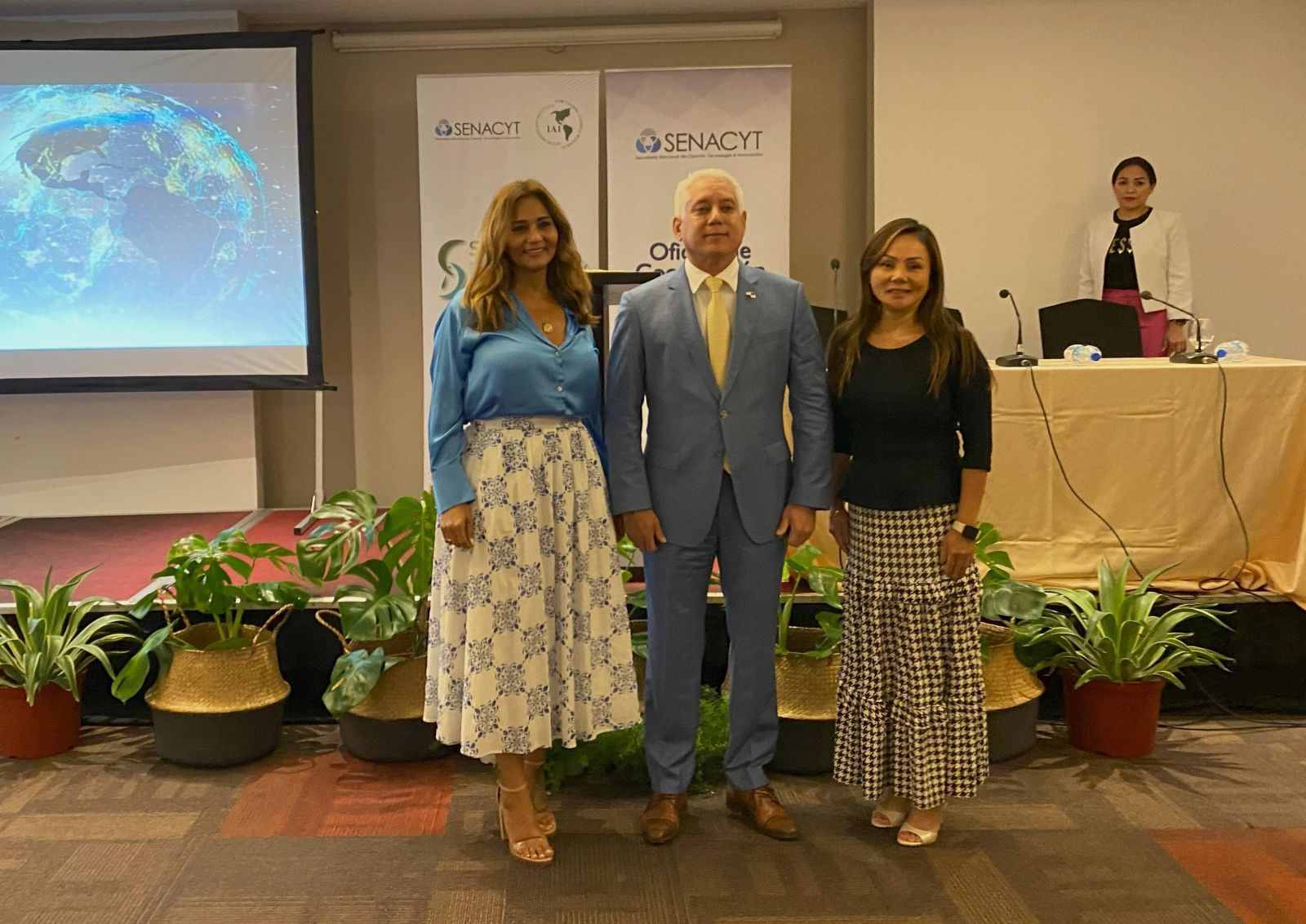Scientific Diplomacy in the Americas - Addressing Global Challenges

Day two of the inaugural training workshop, "Introduction to Scientific Diplomacy"
From October 15 to 21, the inaugural training workshop, "Introduction to Scientific Diplomacy", was held, organized by the Scientific Diplomacy Center (SDC) of the Inter-American Institute for Global Change Research and sponsored by the National Secretariat of Science, Technology and Innovation (SENACYT) of Panama. This workshop is part of the Scientific Diplomacy Training Program for Decision Makers in the Americas.
The event brought together participants from Latin America and the Caribbean in Panama City, providing a unique opportunity to learn and discuss how science diplomacy can address environmental and global challenges shared by the Americas.
“It is important that we work with organizations that lead the development of science and technology worldwide. These meetings stimulate debate, transmit experiences, and build positive bridges of rapprochement between our nations” José Simpson Polo, Minister of the Presidency, Panama
“We were able to move forward co-creatively and facilitate the transfer of knowledge and experiences that we all brought with us” Nicolás Trujillo, Scientific Diplomacy Program, Ministry of Science of Chile
“As citizens of the world, it is important to be able to learn and share good practices in multicultural exchange, in the exchange of knowledge, in scientific exchange, on how to communicate and how to establish relationships” Carlos Maynor Salinas, SENACYT, Panama
The SDC training program aims to train government officials, scientific advisors, and experts from the Americas, especially in the Latin American and Caribbean (LAC) region, to support evidence-based policy processes at the national and multilateral levels. Additionally, the event seeks to provide a space to promote areas of shared interest and stimulate dialogue and collaboration between government officials, institutions, and countries, in order to address global challenges that affect the Americas.
Science diplomacy has become an essential component to address critical issues related to global environmental change in Latin America and the Caribbean (LAC), including biodiversity conservation, ecosystem services, and climate change. The Scientific Diplomacy Training Program seeks not only to equip decision-makers with the necessary tools and skills but also to catalyze areas of common interest and foster a collaborative approach to addressing these challenges.
The work agenda included a visit to the Coiba Scientific Station in the Coiba National Park, an exceptional natural laboratory and an outstanding example of scientific diplomacy in action. In addition, training sessions, panel discussions, and practical exercises were held to enable participants to gain a deeper understanding of science diplomacy and its applications.

Visit to the Coiba Scientific Station in the Coiba National Park
At the Science Diplomacy Forum, important topics were discussed, such as the role of science diplomacy in Panama and the Americas, national science diplomacy strategies, and science diplomacy in academia and the private sector.
 |
 |
|
Anabella Vásquez Fábrega, Director of International Cooperation, SENACYT. |
Reynaldo A. Lee V., Analyst of International Relations, SENACYT |
The program concluded with a climate change negotiation simulation, where participants put what they learned into practice and demonstrated their ability to apply science diplomacy in real-world situations.
“We recognize that scientific diplomacy is a tool that contributes to closing gaps in science, technology, and innovation, building bridges with public policies to influence relations in the Americas”
For more information about the Center for Scientific Diplomacy and future programs, visit the IAI website at https://www.iai.int/en/post/detail/SDC
Participants:
- Maritza Jadrijevic Girardi, Ministry of the Environment, Chile
- Eneida Zanquetta de Freitas, Ministry of Science, Technology and Innovation (MCTI), Brazil
- German Daniel Quesada Paniagua, Department of Sustainable Development and Environment, Ministry of Foreign Affairs, Costa Rica
- Kenneth Rafael Marroquín López, Ministry of Foreign Affairs, Guatemala
- Norman Octavio Mendoza Domínguez, Ministry of Environment and Natural Resources, Guatemala
- Leonardo Pineda, Instituto de Hidrología, Meteorología y Estudios Ambientales – IDEAM, Colombia
- Antônio Marcos Mendonça, Ministry of Science, Technology and Innovation, Brazil
- Zunilda Medina, National Council of Science and Technology CONACYT, Paraguay
- Nicolas Trujillo, Scientific Diplomacy Program, Ministry of Sciences, Chile
- Matías Paolino, Ministry of Foreign Affairs, Uruguay
- Lilliam Casillas Martinez, Center for Inclusive Teaching and Learning, University of Puerto, Rico-Humacao, Puerto Rico
- Andrea Weilder de Albertini, National Council of Science and Technology CONACYT, Paraguay
- Marcos Oliveira, FAPESC, Brazil
- Anne-Teresa Birthwright, Inter-American Institute for Global Change Research, Jamaica
- María Inés Carabajal, Inter-American Institute for Global Change Research, Argentina
- Nathalia Diazibeth Tejedor Flores, Center for Multidisciplinary Studies in Sciences, Engineering and Technology (CEMCIT-AIP), Panama, Luisa Morales, APANAC, Panama
- Maribel Pinto, Ministry of Environment, Panama
- Ediner Fuentes-Campos, SENACYT, Panama
- Carlos A. Alvarado Escala, Scientific Diplomacy of the International Cooperation Directorate, Ministry of Foreign Affairs, Panama
- Grimaldo Elías Ureña, Panama
- Denisse Loayza de Jaén, Renewables, Geosciences Engineering and Commercial, Engineering, Universidad Latina, Panama
- Carlos Maynor Salinas, SENACYT, Panama
- Juan Mate, Smithsonian Tropical Research Institute, Panama
- José Antonio Castillero Gálvez, SENACYT, Panama
- Reynaldo Lee Varela, SENACYT, Panama
- Mirella Martínez, FSU – Panamá
- Angel Campos-González, Specialized Higher Technical Institute, Panama
- Genoveva Quintero, Ministry of Environment, Panama
- Jackeline Calderon, Ministry of Environment, Panama
- Aura López, CIEDU AIP Educational Research Center, Panama
- Katherine Martinez, Ministry of Environment, Panama
- Sara Solís, INDICATIC, Panama
- Grimaldo Elías Ureña, INDICATIC, Panama
- Luis Fernando Alvarado Gamboa, Ministry of Environment and Energy, Costa Rica
- Daniel Cabrera, Vice Ministry of Climate Change and Sustainability, Dominican Republic
- Gabriela Perezmella, Vice Ministry of Climate Change and Sustainability, Dominican Republic
- Lourdes Bntez de Gonzalez, Ministry of Foreign Affairs, Paraguay
- Fiorella Huapaya de Cancillería, Ministry of Foreign Affairs, Peru
- Roger Morales, Ministry of Environment, Peru
- Hilario Espinosa, Belmont Forum, Panama
- Gabriela Duarte, International Institute for Sustainability, Brazil
- Jessica Hidalgo, SENACYT, Panama
Instructors:
- Edwin Castellanos, Science Director, Inter-American Institute for Global Change Research
- Kimberly Montgomery, American Association for the Advancement of Science (AAAS), USA
- Carlos Eduardo Higa Matsumoto, Ministry of Science, Technology and Innovation, Brazil
- Carol Franco, Virginia Tech, Blacksburg, VA, USA
- Marga Gual Soler, Geneva Science and Diplomacy Anticipator (GESDA), Switzerland
- Alma Cristal Hernández-Mondragon, Center for Research and Advanced Studies, México
- Gabriela Gomes Coelho Ferreira, University of Sao Paulo, Brazil
- Franklin Carrero-Martinez, National Academies of Science, Engineering and Medicine (NASEM), USA
- Luisa F. Echeverría-King, Universidad Simón Bolívar in Barranquilla, Colombia
- Pedro Coss Sanz, Dominican Republic
- Kim Portmess, STeP Program Lead, Inter-American Institute for Global Change Research
- Marcella Ohira, Deputy Executive Director, Inter-American Institute for Global Change Research
- Omar Lopez, SENACYT, Panama
- Rolando Gittens, Institute of Scientific Research and Services of High Technology, (INDICASAT AIP), Panama
- Ivonne Torres, University of Panama, Panama
- Ligia Castro de Doens, MiAMBIENTE, Panama
- Yill Otero, Vice Minister of Foreign Affairs, Panama
- Luz Cumba Garcia, PhD, AAAS Fellow at USAID, USA/Puerto Rico
- Edgardo Díaz-Ferguson, Coiba Scientific Station (COIBA AIP), Panama
- José Simpson Polo, Minister of the Presidency, Panama
__________
If you are looking to share information of relevance to the IAI community, please send it to communication@dir.iai.int to be disseminated in social networks and other media.
Remember to subscribe to our newsletter here to keep informed.
Back to Table of Contents
